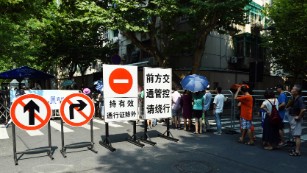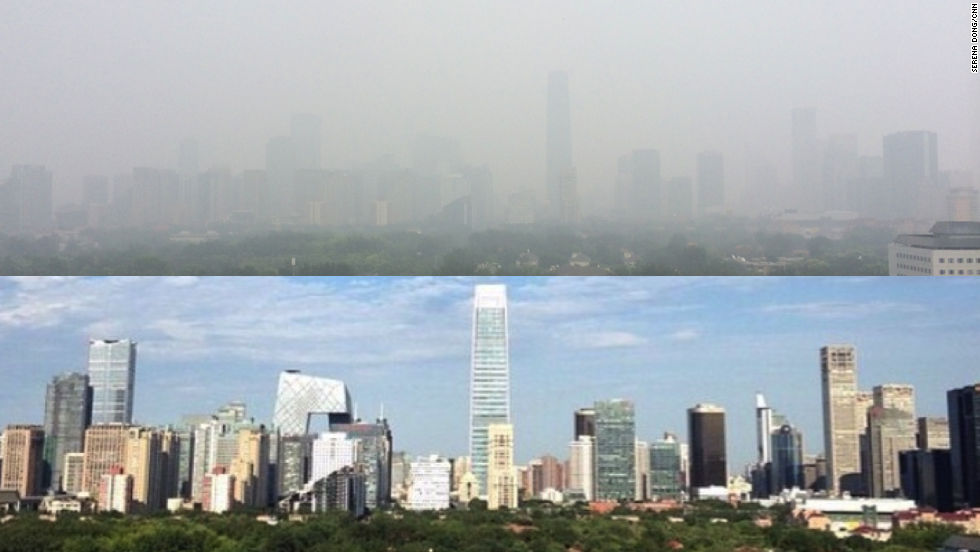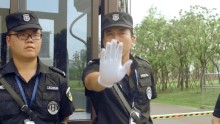Blue skies and police vans: China prepares to host its first G20 summit
World leaders touch down in the Chinese city of Hangzhou this week for the G20 summit and Beijing is determined it will proceed without a hitch.
Factories are shuttered, skies are clear and security is tight. Local residents have been given seven days extra vacation time and discounted tours to destinations outside the city to ensure Hangzhou is free of crowds and traffic.
Meanwhile, thousands of migrant workers have left the city due to the halt in their work lives and the growing inconvenience caused by G20 preparation measures.
What will be discussed at the summit? How has China prepared? And why is it in Hangzhou anyway?
Here's five things you need to know.
China takes the lead
The Hangzhou meeting will be the first G20 China has hosted, and only the second held in Asia since 2008.
The G20's first high-profile meeting was in Washington D.C. in 2008, after the fall of Lehman Brothers bank and the start of the global financial crisis.
An alternative to the more exclusive G7, it was designed as a way to create conversation at the top levels of international government and try to ensure disasters, like the financial crisis, were avoided in the future.
The Hangzhou summit has been called another "milestone" for a rising China, keen to show its growing dominance on the world stage.
It's an opportunity for President Xi Jinping to burnish his diplomatic credentials.
He'll meet Indian Prime Minister Narendra Modi, German Chancellor Angela Merkel and it will likely be his last bilateral meeting with US President Barack Obama.
No effort spared
China is not taking any chances with the showpiece event -- Hangzhou is in "virtual lockdown," according to CNN's Andrew Stevens, in the lead-up to the arrival of world leaders on Friday.

A security checkpoint at the West Lake scenic spot in Hangzhou.
Police officers and security guards will be stationed every five to 10 meters at popular attractions like the city's West Lake, according to the state-run Global Times newspaper.
"Security is tight and getting tighter," Stevens said, adding his camera crew were stopped multiple times and asked for their credentials.
One migrant worker told CNN that authorities had confiscated the gas tank his family uses for cooking, saying it didn't meet safety standards.
"Ordinary people suffer. It's really affected our daily lives," said Xu, who didn't want to give his full name.
Hangzhou: Innovation capital?
Hangzhou wasn't just chosen to host the G20 because of its natural beauty -- it's also symbolic as a marker of China's transition from a low-cost manufacturer to high-tech economy.
E-commerce group Alibaba, one of China's largest companies and most successful start-ups, was founded in Hangzhou, the hometown of founder Jack Ma.
Alipay -- Alibaba's mobile payment application -- has changed the way Chinese people shop.
Chinese residents can easily get by without a wallet as the app allows them to pay bills with a simple swipe of their smart phones -- even at the smallest street restaurants and vegetable vendors.
"We're pretty small city, only have close to nine million people but Hangzhou is so powerful, so influential to China's economy, to China's culture," Ma told Alibaba's news services Alizila.
President Xi has a history with the city as well -- he lived in Hangzhou for five years while serving as the province's Communist Party chief and is said to be fond of his time there.
G20 blue
Hangzhou is renowned as one of China's most beautiful cities, but, like many places in China, it struggles with pollution, ranking 43 out of 74 cities in a 2014 study by Greenpeace.
But in the lead-up to the G20, the sky has cleared as polluting industries have been shut down or moved for the international meeting's duration. Some 225 factories have been ordered to close and traffic will also be restricted, with half the city's vehicles barred from roads from August 28.
The China Daily said an upper limit of PM2.5 particles, one of the worst pollutants, was set at 35 micrograms per cubic meter during the summit. The average PM2.5 level in Hangzhou in 2014 was 66.1.
Nearby cities of Huangshan, Anqing, Yiwu and even Shanghai are also cleaning up their factories, according to Chinese media.
It's a pattern seen before other big ticket events.
In 2014, Beijing residents coined the wry phrase "APEC blue" after authorities went all out to ensure clear skies before the powwow of Asia Pacific leaders and last September the skies turned "parade blue" as Beijing hosted a massive military parade.

Images taken from CNN's Beijing bureau on November 6, when the sky was blue during the APEC summit, and on November 19 when the smog returned.
The elephant in the room?
It's been less than three months since China lost to the Philippines in an international court caseover its contested territorial claims in the South China Sea.
But at the G20 in Hangzhou, the host country will be working hard to keep it off the agenda.
Vice-Foreign Minister Li Baodong said it will be focusing on economic issues, according togovernment mouthpiece China Daily, rather than security.
In a separate editorial, the Global Times wrote the Hangzhou summit "shouldn't be distracted by sea spat."
News Courtesy: www.cnn.com











